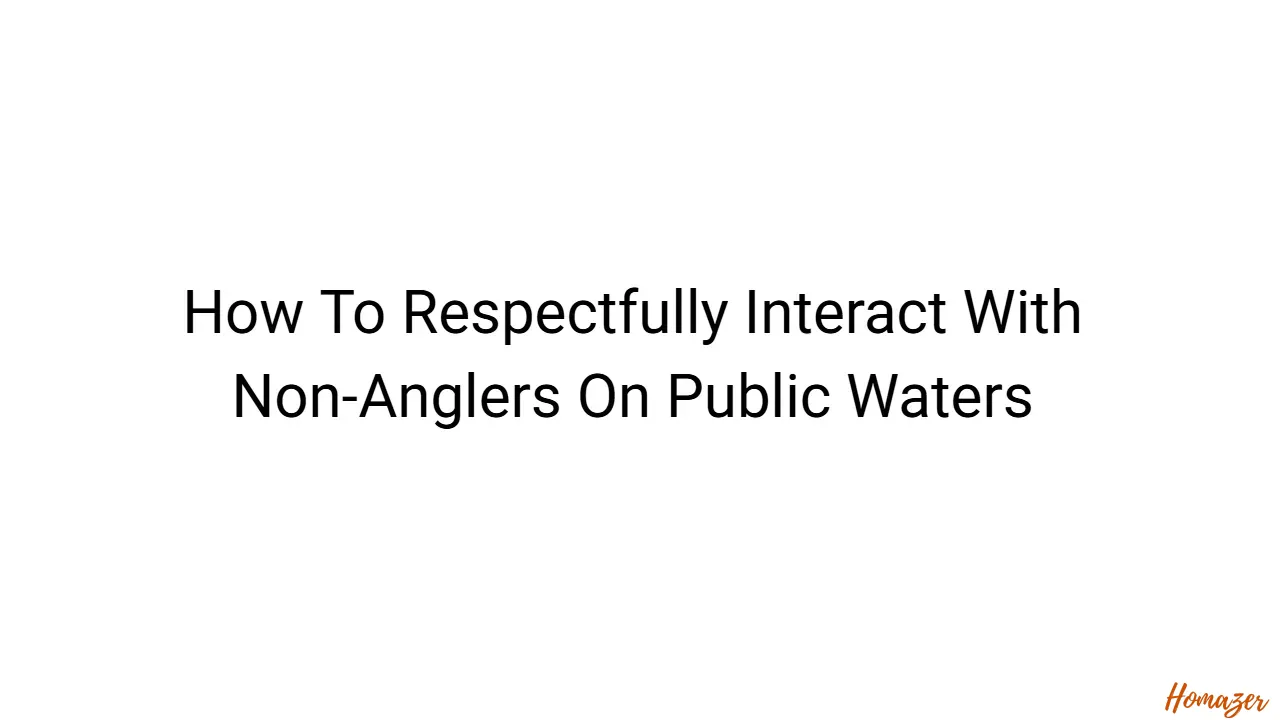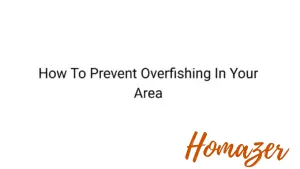Picture this: you’ve finally found the perfect fishing spot, the sun is setting, and you’re ready to cast your line. But then, a group of kayakers paddles into your area. Now, what do you do? This situation is common, especially on public waterways. Learning how to respectfully interact with non-anglers on public waters is a vital skill for enjoying our shared resources peacefully. In this guide, we’ll explore practical tips and strategies to help you have positive interactions, fostering a better experience for everyone. You’ll gain valuable knowledge that improves your experience, increasing your enjoyment and reducing any potential for conflict. This should also help you avoid unwanted situations and potentially improve your relationship with the wider public on the water.
Sharing the Water: A Guide to Coexistence
Public waters are for everyone, which means sharing space with all sorts of people. Anglers, kayakers, swimmers, boaters, and others all have a right to enjoy these areas. Acknowledging this fundamental principle is the first step toward respectful interactions. It’s about recognizing that we’re all there to have a good time, whether we’re casting a line, paddling along the shore, or simply enjoying the scenery. This shared space requires a degree of compromise and awareness from everyone involved, and understanding that helps ensure everyone feels safe and welcome. Understanding these principles will help you create a positive experience for both you and others, making your time on the water more enjoyable.
Respecting Space
One of the easiest ways to show respect is by giving everyone space. Anglers need room to cast, kayakers need room to paddle, and swimmers need room to swim. Avoid casting your line too close to others, be aware of where boats or kayaks are, and give people a wide berth when passing. Consider the impact of your actions on others and adjust your behavior accordingly. A little consideration can go a long way in preventing conflicts and creating a more harmonious environment.
- Maintain a Safe Distance: When anglers cast, they swing their rods, creating a potentially hazardous situation. Keep a safe distance from other people to avoid accidentally hooking someone or entangling lines.
- Be Aware of Your Surroundings: Pay attention to what’s happening around you. Look for swimmers, kayakers, or other people using the water. This helps you anticipate their movements and avoid potential conflicts.
- Communicate Clearly: If you need to pass someone in a boat or kayak, signal your intentions clearly. A simple wave or a verbal greeting can go a long way.
Ensuring a safe distance shows that you respect their personal space and prioritize their safety. Be mindful of the length of your cast and the location of other people. If you see someone approaching, reel in your line or move to a different spot. This small act of consideration significantly reduces the chance of accidents and improves the overall experience for everyone. Safety first should always be the motto.
Constantly scanning your surroundings should become second nature. This includes observing the direction of boats, the location of swimmers, and the actions of other anglers. Being aware allows you to make quick adjustments to your position or casting style to avoid interfering with their activities. It will also help you identify potential hazards, like underwater obstacles, which could be important to your fishing. This will enhance your overall safety.
Clear communication is a key aspect of respectful interaction. Simple gestures, like a wave or a smile, convey friendliness and acknowledge their presence. If you’re using a boat, a brief verbal exchange, such as saying “passing on your left,” provides them with advance notice of your movement. Clear communication establishes a foundation of mutual respect and helps prevent misunderstandings, making for a more comfortable and enjoyable shared experience.
Communication and Courtesy
Communication is the cornerstone of respectful interactions. Even a simple “hello” or a friendly nod can set a positive tone. If you need to speak with non-anglers, do so politely and respectfully. Remember, everyone appreciates being treated with courtesy. Approaching conversations with a positive attitude makes the other person more likely to respond positively, too. This type of communication avoids unnecessary conflict and promotes a more pleasant shared environment.
- Be Approachable and Friendly: A warm smile and a friendly greeting can go a long way. Make eye contact and initiate a conversation if the situation calls for it.
- Explain What You’re Doing: If someone seems curious about what you’re doing, briefly explain what you’re fishing for or what techniques you’re using.
- Be Understanding and Empathetic: Recognize that non-anglers may not fully understand fishing practices or the challenges involved.
Approachable behavior creates a welcoming atmosphere. A simple “good morning” or “how’s the fishing?” can break the ice and shows that you’re open to interacting. This can ease potential tension and foster a positive environment. Approachability starts with showing that you are open to friendly communication and interaction, which will ease any misunderstandings.
Giving a brief explanation satisfies their curiosity and offers an opportunity to share your passion. When people understand your activities, they’re less likely to feel excluded or disrupted. This helps reduce any feelings of intrusiveness. This can transform a simple interaction into an educational opportunity, creating a better experience for all involved. You can, for example, tell them what you are fishing for, and what equipment you are using.
Putting yourself in their shoes can help you respond more effectively. Remember that they may have different expectations and levels of experience on the water. Be patient and willing to explain things or answer questions. This empathy fosters a more positive relationship and encourages mutual respect, making for a more enjoyable experience. Showing that you understand their perspective creates a bridge of commonality.
Handling Disputes
Not every interaction goes smoothly. Sometimes, misunderstandings or conflicts may arise. It’s important to stay calm, listen to the other person’s concerns, and try to find a solution that works for everyone. Remember, getting angry will only make the situation worse. The goal should be to de-escalate the situation and reach a resolution that respects all parties. The best thing is to always remember that the point is to have fun, for you and others.
- Stay Calm and Listen: If a conflict arises, take a deep breath and listen carefully to the other person’s point of view. Avoid interrupting or becoming defensive.
- Find Common Ground: Look for areas where you can agree. Maybe you can move your position slightly to accommodate their needs or adjust your fishing technique.
- Know When to Walk Away: If a conflict is escalating and you can’t reach a resolution, it’s better to disengage. Move to a different area or end your fishing trip.
Remaining calm and listening attentively will help you understand their concerns. Active listening helps you identify the root of the problem and shows that you value their perspective. Listening without judgment shows that you value their perspective and reduces the likelihood of escalating the conflict. Taking time to understand the issue will let you find a better outcome.
Seeking common ground highlights that you’re willing to make compromises. Even small adjustments can make a big difference in resolving conflicts. When you demonstrate that you’re flexible and willing to find a solution, it shows a commitment to peaceful coexistence. The idea is to find some middle ground where both parties can continue to enjoy the water.
Sometimes, walking away is the most effective choice. Continuing a heated argument will not be productive, and it can be counterproductive. This prevents the situation from worsening and allows everyone to cool down. Recognizing when to walk away showcases your commitment to preserving a peaceful environment, protecting your experience, and ensuring your personal safety. Knowing when to end an encounter, lets you reset and enjoy another time.
Common Scenarios and How to Respectfully Interact with Non-Anglers on Public Waters
Let’s look at some real-life scenarios to better understand how to respectfully interact with non-anglers on public waters. These examples demonstrate the importance of communication, consideration, and finding common ground. Each scenario shows how to manage the interaction while keeping the peace.
- The Kayaker Crossing Your Path: You’re casting and a kayaker paddles right through your fishing area.
What to do: Reel in your line quickly to avoid hooking them. Wave and smile, acknowledging their presence. If possible, wait for them to pass or slightly adjust your position. Once they’re clear, you can resume fishing. You can say something like “Good morning! Just be aware of my line!”
- The Swimmer Near Your Spot: You’re enjoying a peaceful time fishing, when suddenly, a swimmer appears nearby.
What to do: Immediately check your surroundings to ensure your line is away from the swimmer. Politely greet the swimmer and let them know you’re fishing, avoiding casting near them. If they are swimming or moving around a lot, you can move your fishing spot to avoid them. Remember to smile and enjoy the day.
The Benefits of Harmonious Interactions
Respectful interactions lead to numerous benefits for anglers and non-anglers alike. When we prioritize courtesy and consideration, we create a more pleasant experience for everyone involved. Not only does this enhance personal enjoyment, but it also helps to foster a positive image of anglers within the community.
Improving Your Experience on the Water
Positive interactions lead to a more relaxing and enjoyable fishing experience. By practicing respectful behavior, anglers can minimize conflicts and maximize their time on the water. A stress-free environment enables you to fully focus on the thrill of the catch and the beauty of nature. This also leads to better relationships with fellow anglers and non-anglers alike.
- Reduced Stress and Conflict: Peaceful interactions create a calmer environment. This, in turn, allows anglers to focus on their activity without the distraction of potential arguments or misunderstandings.
- Enhanced Enjoyment of Nature: When you’re not dealing with conflicts, you can fully appreciate the beauty of the surrounding environment. This increases relaxation and enjoyment of the water.
- Increased Opportunity for Education: Respectful interactions can lead to sharing knowledge and experiences. This can increase your overall fishing knowledge, and help you get better at the sport.
Reducing stress allows you to focus on the pleasure of fishing. Avoiding conflicts and tension lets you truly enjoy the peace and quiet of the outdoors. This minimizes the likelihood of confrontations and allows you to enjoy a better fishing experience. Less stress makes for more enjoyable days.
Fishing is an experience best enjoyed when you can focus on the environment. Positive interactions allow you to better connect with the natural world. Increased respect and harmony lead to improved satisfaction and make your time on the water more meaningful and memorable. So many things can bring happiness to your experience.
When you have a positive relationship with non-anglers, you might be able to share your expertise. You can also learn from others, increasing your knowledge and passion for fishing. These opportunities expand your understanding and passion for the sport, enriching the experience.
Building a Positive Reputation for Anglers
The actions of individual anglers contribute to the overall perception of the angling community. Demonstrating respect and consideration can help to create a positive image for all anglers, creating a more welcoming environment. This will help make sure that fishing is accepted as a positive and enjoyable pastime. Anglers can actively contribute to a favorable opinion of themselves.
- Improved Public Perception: When anglers are respectful, non-anglers are more likely to view them positively. This enhances the image of the angling community.
- Support for Conservation Efforts: A positive image fosters goodwill and encourages support for conservation initiatives. This helps to make sure that the waters that are used, remain healthy.
- Increased Access to Fishing Spots: A good reputation can help ensure continued access to popular fishing locations. This allows anglers to have their access to the water, without worrying about restrictions.
Positive interactions help to build a reputation as responsible and considerate members of the public. This improves the relationship between anglers and non-anglers, leading to a more harmonious environment. This helps the entire group, and ensures that everyone is respectful of each other’s rights and activities.
When anglers are seen as responsible stewards of the environment, they gain support for conservation. Showing that you care about the environment can result in more resources and backing for preservation efforts. This will help protect the waters for future generations.
Respectful behavior can prevent fishing restrictions and promote cooperation with landowners. This makes sure that anglers continue to be welcome and enjoy their activities. The more respect shown, the more likely these fishing spots will be open.
Promoting Environmental Stewardship
Respectful interactions also extend to environmental responsibility. Anglers can set an example by practicing responsible fishing techniques and demonstrating a commitment to conservation. This approach shows the public’s dedication to protecting the health of the waterways. This way, the enjoyment of fishing will continue for future generations. Protecting the environment goes hand-in-hand with respect for others.
- Responsible Fishing Practices: Practicing catch-and-release, using barbless hooks, and removing litter are all examples of responsible fishing.
- Educating Others: Anglers can share their knowledge about conservation practices with non-anglers. This increases awareness.
- Supporting Conservation Organizations: Anglers can get involved with local organizations that focus on habitat restoration and pollution control.
These actions help minimize harm to fish populations and maintain the health of aquatic ecosystems. Responsible practices help preserve the waterways and ecosystems, protecting the fish from harm. These actions demonstrate a commitment to environmental care. The waters will remain healthy for generations.
Sharing information helps promote the importance of protecting the waterways. This will also help to spread awareness and inspire others to adopt responsible practices. This will help to protect these important spaces for future use. The more people that care, the better.
Supporting conservation groups strengthens the cause for environmental protection. Participation shows a commitment to protecting the environment and contributes to a better experience for everyone. These efforts help maintain the health of the waters and its inhabitants.
| Aspect | Anglers | Non-Anglers |
|---|---|---|
| Safety | Awareness of surroundings, safe casting, and clear communication. | Staying clear of anglers’ casting areas and respecting fishing zones. |
| Respect | Politeness, empathy, and willingness to share information. | Being mindful of anglers’ activities and showing patience. |
| Cooperation | Finding common ground, adjusting fishing to accommodate others. | Willingness to adjust routes and activities to coexist. |
Frequently Asked Questions
Question: What do I do if I accidentally hook someone?
Answer: Immediately apologize and assess the situation. Offer assistance if needed and stay calm.
Question: How can I handle a situation where someone is fishing too close to me?
Answer: Politely ask them to move, or choose a different fishing spot. Make sure to stay calm and respectful.
Question: What if someone is littering in the water?
Answer: Politely ask them to pick it up. If that doesn’t work, report the behavior.
Question: Is it okay to fish in areas with a lot of boat traffic?
Answer: It’s best to avoid high-traffic areas. This reduces your chance of interacting with non-anglers, and it is also safer.
Question: What if someone is being disrespectful towards me?
Answer: Stay calm, avoid escalation, and if needed, walk away and report the behavior to the relevant authorities.
Final Thoughts
Mastering how to respectfully interact with non-anglers on public waters is an important skill that improves the experience for everyone. It means understanding that the waterways are shared spaces, requiring courtesy, awareness, and clear communication. By prioritizing these elements, anglers and non-anglers alike can enjoy the water peacefully. Remember, building positive relationships improves your experience, and improves the experience for others. Keep the focus on respect, communication, and a shared appreciation for the outdoors. With a little effort, we can all contribute to a more enjoyable and harmonious environment for everyone. Cast your line with respect, and watch the good times roll!





